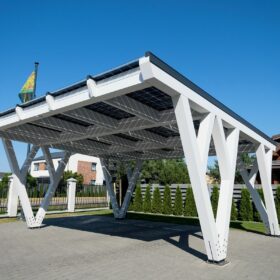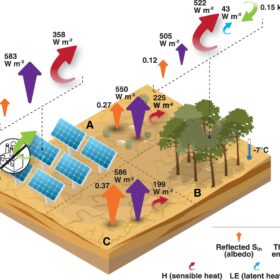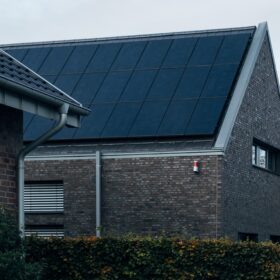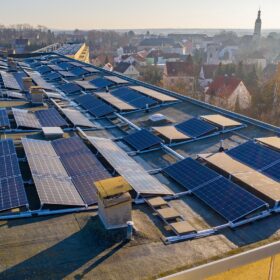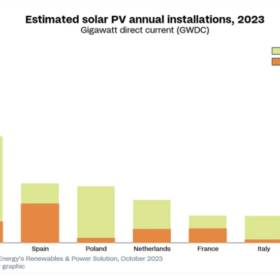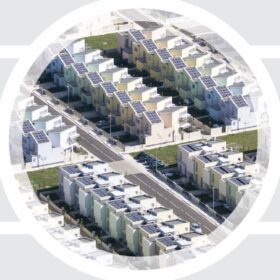Solitek launches solar carport for residential, commercial applications
Lithuania-based Solitek has launched a carport product line featuring 370 W glass-glass frameless modules. It is designed to withstand a snow load of up to 2.5 kN/m2 and 27m/s of wind loads.
Israel to build energy communities in villages destroyed by Hamas
Israel’s Ministry of Energy and Infrastructure says it is currently developing a multi-year program for communities attacked by Hamas on Oct. 7. It aims to deploy 5 GW of energy in the destroyed areas, once residents return.
New research claims PV outperforms afforestation in combating climate change
Scientists from Israel have calculated how long it would take for PV plants and afforestation projects to offset their warming impacts caused by the darkening of land. The results showed that in drylands, PV fields could be over 50 times more efficient than afforestation.
Only 3 Portuguese energy communities operating despite massive demand
The European Commission first set up the rules for energy sharing communities in 2018 and 2019, with Portugal rolling out its own legislation soon after. Despite these efforts, five years on there are only three energy sharing communities legally operating in the Mediterranean country, with hundreds more stuck in a year-long regulatory backlog, one local engineer tells pv magazine.
Self-financed solar array destroyed in Lebanese farming village
One of the project architects behind a solar power system in a southern Lebanese village tells pv magazine that the 200-panel array – which pumped water from an underground well for roughly 400 families – was allegedly destroyed earlier this month by Israeli forces. The community needs help rebuilding it, he says.
Collectively owned PV systems improve energy community performance
Researchers have looked into the impact of potential regulated charge exemptions on two types of energy communities in 39 European countries. They have found that communities with collectively owned PV systems achieve greater savings.
Germany’s Teleson enters PV industry with sales app
Teleson has launched a sales and distribution platform for PV projects. The mobile and phone app is available for the company’s German-based customers.
Israel to use solar fences to protect villages
Against the backdrop of its war with Hamas, Israel has started allowing villages to install solar fences to improve protection for residents.
Europe to add 58 GW of solar in 2023
Europe’s solar installation levels are exceeding expectations and are on track to grow 30% this year from 2022, according to Rystad Energy.
Strategies to develop ‘solar neighborhoods’
A group of scientists across the world have created a list of recommendations that can help create solar neighborhoods. In a recently published study they highlight the importance of legislative frameworks and advanced computing.
